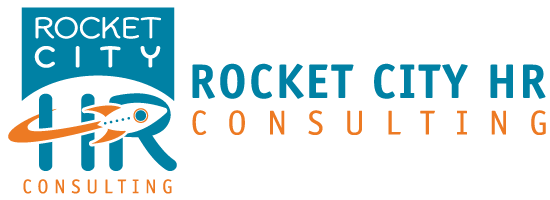The sweep of the COVID-19 novel coronavirus across the globe has been an unprecedented time of upheaval for governments, organizations, and individuals alike.
However, your business or non-profit can stay focused on mitigating risk during this disaster by using the following resources and initiating practical business continuity procedures.
If the below resources don’t answer your immediate questions, or if you would like to engage with us to review your leave, telework, or other human resources policies and procedures, use our contact form below or call us at 256-272-9555 today to receive timely assistance.
Questions & Answers
Preventing Coronavirus Spread in the Workplace
A: As an employer, you should be doing the following:
- Ensure that employees have ample facilities to wash their hands
- Evaluate your remote work capacities and policies
- Teleconference or use other remote work tools when possible
- When a virtual meeting is not an option, ensure large open or outdoor spaces for meetings involving 10 or more people to accommodate social distancing.
- Modify employee work schedules to spread employees out at least 3-6 feet from each other and reduce crowding in break rooms and other common areas
- Designate a point of contact for employees for all concerns relating to the virus
- Monitor updates from the Centers for Disease Control (CDC) and the WHO regarding additional updates and precautions
- Actively encourage sick employees to stay home
- Isolate sick employees to prevent contamination.
- Perform routine environmental cleaning (wipe down surfaces with sanitizing cleaners)
- Increase custodial schedules and third-party cleaning, if possible
- Encourage proper cough and sneeze etiquette and hand washing hygiene by all employees
- Communicate with employees regularly
- Repeatedly encourage employees and visitors to:
- Wash hands often with soap and water for at least 20 seconds
- If soap and water are not available, use an alcohol-based hand sanitizer
- Avoid touching one’s eyes, nose, and mouth
- Avoid close contact with others, especially those who are sick
- Refrain from shaking hands with others
- Cover coughs or sneezes with a tissue and throw the tissue in the trash
- If tissues are not available, cough or sneeze into one’s sleeve
- Wipe down and disinfect frequently touched objects and surfaces
- Stay home when you (or a close family member) are sick
- Wash hands often with soap and water for at least 20 seconds
- Display/send out posters with coronavirus precautions and information
Dealing with Coronavirus in the Workplace
A: During a pandemic, employers may:
- Ask employees if they have influenza-like symptoms
- If employees are experiencing symptoms or have a fever of 100.4 degrees Fahrenheit or higher, employers may send them home and ask them to not return to work until they have been symptom-free for 24 hours
- Ask if employees are returning from locations where the coronavirus is present, even if the travel was for personal reasons
- Make a disability-related inquiry or require a medical examination if the employer reasonably and objectively believes that the employee’s medical condition either impairs the employee’s ability to perform essential job functions or poses a direct threat to the health or safety of the employee or others
- If the CDC or state or local public health officials recommend that people who visit specified locations remain at home after traveling, an employer may ask an employee what locations they have traveled to, even if the travel was for personal reasons.
* Please note that any information gathered about an employee’s health condition must be kept separate from their general personnel file and should be treated as a confidential medical record.
A: Because the WHO has declared COVID-19 to be a pandemic, temperature-taking of employees as a condition of working may be permissible. Please note that the Americans with Disabilities Act considers taking an employee’s temperature to be a “medical examination” under the ADA. Normally, the ADA prohibits employers from requiring medical examinations and making disability-related inquiries.
However, keep in mind that an employee may be infected with the coronavirus without having a fever, so temperature checks may not be the most effective method for protecting the workforce.
A: Please keep in mind that these symptoms could be the result of other conditions, but a trained medical professional must make a diagnosis and perform the appropriate testing. An employer should require any employee who becomes ill at work with coronavirus-type symptoms to notify their supervisor immediately. Also, train your supervisors and managers on the importance of not overreacting to workplace situations which could be related to COVID-19.
TAKE THESE STEPS:
- Inquiries into an employee’s symptoms should attempt to distinguish the symptoms of COVID-19 from the common cold and the seasonal flu. This includes inquiries into whether an employee is experiencing:
- Fever
- Fatigue
- Cough
- Sneezing
- Aches and pains
- Runny or stuffy nose
- Sore throat
- Diarrhea
- Headaches
- Shortness of breath
- Before the employee departs, ask them to identify all individuals who worked in close proximity (less than six feet) to them in the previous 14 days to ensure the employer has a full list of those who may have come into contact with the virus
- Employers should inform employees of their possible exposure to the coronavirus in the workplace while maintaining the affected/suspected employee’s confidentiality, as required by the ADA
- The employee and all identified employees who worked closely with that employee should be sent home for a 14-day self-quarantine period to ensure the infection does not spread. If a co-worker is symptom-free for 14 days, they should be safe to return to work, provided they have not been exposed to any other people with the virus.
- DO NOT SEND THE EMPLOYEE WHO IS SUSPECTED TO BE INFECTED IMMEDIATELY TO THE DOCTOR’S OFFICE OR EMERGENCY ROOM. RELEASE THEM FROM WORK AND HAVE THEM CALL THEM AHEAD TO THE MEDICAL FACILITY OR HAVE THEM PRESENT THEMSELVES FOR DRIVE THROUGH TESTING.
- Conduct a deep cleaning of the affected workspaces
A: No. The healthcare provider that receives confirmation of a positive test result will handle that notification.
Coronavirus Outside of the Workplace
A: Yes. Employees who are showing symptoms of the virus should be directed to remain at home until they are symptom-free for at least 24 hours.
If an employee begins experiencing symptoms while off duty, if they have been exposed to someone with symptoms, or if they have tested positive, the employee should be instructed to notify the employer by phone or email (NOT IN PERSON).
Coronavirus and the Americans with Disabilities Act
A: Generally, seasonal flu is not a disability under the ADA. The Equal Employment Opportunity Commission (EEOC) has previously stated that advising workers to go home is not disability-related if the symptoms present are similar to the seasonal influenza or the H1N1 virus. Therefore, an employer may require workers to go home if they exhibit symptoms of the COVID-19 coronavirus or the flu.
Keep in mind that complications arising from the flu or coronavirus infection may lead to medical conditions which can become an ADA-covered disability. ADA-covered employers (generally those employers with 15 or more employees) must make reasonable accommodations for an employee with a disability, including providing alternate ways to perform the work, providing leave, or adjusting attendance requirements. While what is considered reasonable will vary based on the size and type of employer, it is essential to enter into an interactive discussion about which essential job functions need to be accommodated.
“ADA rules continue to apply, but they do not interfere with or prevent employers from following the guidelines and suggestions made by the CDC or state/local public health authorities about steps employers should take regarding COVID19. Employers should remember that guidance from public health authorities is likely to change as the COVID-19 pandemic evolves.”
A: Some of the most common types of accommodation in this situation are permitting the employee to telework (to prevent the spread of the disease) and permitting them to take additional time off to self-quarantine and recover.
Telework
Employees with disabilities that put them at high risk for complications of coronavirus may request telework as a reasonable accommodation. Likewise, telework can be used to accommodate an employee when they or a family member has been infected with the virus.
Leave
Employees may need additional time off for medical treatments and quarantine. This need was previously addressed by the new Families First Coronavirus Response Act (FFCRA) in greater detail here: https://www.dol.gov/agencies/whd/pandemic/ffcra-employer-paid-leave.
While the requirement to provide the below described leave expired 12/31/2020, the American Plan Rescue Act (ARPA) has extended tax credits for employers who voluntarily continue to provide such leave.
In brief, the FFCRA provided leave for employees under the following conditions:
- Two weeks (up to 80 hours) of paid sick leave at the employee’s regular rate of pay where the employee is unable to work because the employee is quarantined and/or experiencing COVID-19 symptoms and seeking a medical diagnosis; or
- Two weeks (up to 80 hours) of paid sick leave at 2/3 the employee’s regular rate of pay if the employee is unable to work because of a bona fide need to care for an individual subject to quarantine, or care for a child (under 18 years of age) whose school or child care provider is closed or unavailable for reasons related to COVID-19.
- Up to an additional ten weeks of paid expanded family and medical leave at 2/3 the employee’s regular rate of pay where an employee is unable to work due to a bona fide need for leave to care for a child whose school or child care provider is closed or unavailable for reasons related to COVID-19.
Qualifying Reasons for Leave Under the FFCRA
An employee qualifies for paid sick time if he or she is unable to work (or unable to telework) due to a need for leave because the employee:
- is subject to a Federal, State, or local quarantine or isolation order related to COVID-19;
- has been advised by a health care provider to self-quarantine related to COVID-19;
- is experiencing COVID-19 symptoms and is seeking a medical diagnosis;
- is caring for an individual subject to an order described in (1) or self-quarantine as described in (2);
- is caring for a child whose school or place of care is closed (or child care provider is unavailable) for reasons related to COVID-19; or
- is experiencing any other substantially-similar condition specified by the Secretary of Health and Human Services, in consultation with the Secretaries of Labor and Treasury.
Occupational Safety and Health Administration (OSHA) Implications
A: Employers must comply with OSHA’s general duty clause, which requires they provide employees a safe place to work that is free from recognized hazards likely to cause death or serious physical harm.
Right now, there is no specific Occupational Safety and Health Administration (OSHA) standard covering the coronavirus. Employers must:
- Identify possible work-related exposure and health risks to your employees
- Prevent occupational exposure to the coronavirus
In a pandemic, an employer could be cited for a general duty clause violation if:
- The coronavirus was present in the workplace and the employer’s efforts to control exposure were insufficient
- Employees were required to perform tasks that exposed them to the hazard of pandemic coronavirus
A: OSHA recordkeeping requirements mandate covered employers maintain records of certain work-related injuries and illnesses on an OSHA 300 log. If a worker contracts the COVID-19 virus while on the job, the employer must record it. Employers must record cases of COVID-19 if:
- The employee has a confirmed case of COVID-19
- The case is work-related, as defined by 29 CFR 1904.5 (it happened in the course of employment)
- The case involves one or more of the recording criteria set forth in 29 CFR 1904.7 (e.g. medical treatment beyond first-aid, days away from work, loss of consciousness, etc.)
The illness is not reportable if the employee was exposed to the virus while off duty.
Travel
A: Employers may ban any business-related travel to areas of high community spread. Employers should consider reasonable alternatives for their workforce, such as videoconferencing
Employers cannot generally prohibit otherwise legal activity, such as travel abroad by an employee. Employers may strongly encourage their employees to avoid all non-essential travel to areas where coronavirus outbreaks are high. Employers should consider advising employees about the risks associated with such travel and informing them of the consequences of undertaking such travel, including periods of quarantine (14 days is the current guidance) before being allowed to return to the workplace. All such prohibitions should be applied in a non-discriminatory fashion. Currently all U.S. citizens, legal permanent residents, and their immediate families who are returning from a restricted country must self-quarantine in their homes for 14 days after their arrival.
During a pandemic, an employer does not have to wait until an employee develops symptoms to ask questions about exposure to a pandemic influenza during recent travel.
Right now, there is no specific Occupational Safety and Health Administration (OSHA) standard covering the coronavirus. Employers must:
- Identify possible work-related exposure and health risks to your employees
- Prevent occupational exposure to the coronavirus
In a pandemic, an employer could be cited for a general duty clause violation if:
- The coronavirus was present in the workplace and the employer’s efforts to control exposure were insufficient
- Employees were required to perform tasks that exposed them to the hazard of pandemic coronavirus
Work Refusal
A: Employees may only refuse to come to work if they believe they are in imminent danger, according to OSHA. “Imminent danger” is defined as “any conditions or practices in any place of employment … which can reasonably be expected to cause death or serious physical harm…” The employee must reasonably believe the threat could lead to death or serious physical harm within a short time period.
Requiring employees to work with infected patients in a medical setting without personal protective equipment would likely rise to the threshold of imminent danger.
Childcare
A: No. Schools have been closed in an effort to stop the spread of the coronavirus. Allowing children to gather in “kid zones” would place children at risk of spreading the virus and potentially affecting employees. State regulating agencies may consider Kid Zones to be unlicensed daycare centers.
Confidentiality of Medical Information
A: The privacy restrictions mandated by HIPAA only apply to “covered entities” (such as medical providers or employer-sponsored group health plans) with regard to an individual’s identifiable health information. Employers are not covered entities, so if an employer has medical information in employment records, it is not subject to HIPAA restrictions.
Employers should, however, treat all employee medical information as confidential. Employers may disclose protected health information (PHI) only to authorized personnel (after properly identifying their credentials) in these instances:
- to providers to help in medical treatment
- to emergency relief workers to help coordinate services
- to public health authorities (including organizations like the Red Cross, authorized by law to assist in disaster relief efforts) for ensuring public health and safety
- to providers or government officials to locate, identify, or notify family members, guardians, or anyone else responsible for an individual’s care
If possible, the employer should get the employee’s written or verbal permission to disclose the information. However, if the employee is unconscious or incapacitated, or cannot be located, the information should only be disclosed if doing so would be in the person’s best interests.
American Plan Rescue Act (ARPA)
The American Plan Rescue Act (ARPA) affects your employees in three areas.
First, it requires all COBRA-eligible employers to provide 100% COBRA payment assistance for employees who became ineligible for the employer’s regular group health plan due to being involuntarily separated or having their work hours reduced, unless the action was a result of gross misconduct. Employers will be able to submit for 100% reimbursement through payroll tax credits. The effective period is from 04/01/2021 to 09/30/2021 and applies to any qualified individual who is COBRA-eligible during the effective period.
Second, the ARPA provided for a temporary increase in the contribution limits for Dependent Care FSAs to $10,000 per year (or $5,250 for individuals who are married but file separately) for the year 2021.
Finally, the ARPA extended the payroll tax credits for COVID-19 related leave established under the FFCRA for employers who voluntarily continue to offer such leave for their employees.
COVID-19 Vaccination
Employers do have the ability to require employees to obtain the COVID-19 vaccine. However, employers should make sure policies are consistent across all employees or are based on the nature of the employees’ positions. Further, employers would still be held to ADA and religious reasonable accommodations should an employee fall into one or both categories.
Links
Center for Disease Control (CDC) Resources for Businesses and Employers
https://www.cdc.gov/coronavirus/2019-ncov/community/organizations/businesses-employers.html
Center for Disease Control (CDC) CDC Travel Information
Department of Labor (DoL) Coronavirus Resources
https://www.dol.gov/coronavirus
Department of Labor – Families First Coronavirus Response Act (FFCRA) Questions
https://www.dol.gov/agencies/whd/pandemic/ffcra-questions
Equal Employment Opportunity Commission (EEOC)
https://www.eeoc.gov/laws/guidance/pandemic-preparedness-workplace-and-americans-disabilities-act
E-Verify Temporary Policies Due to Coronavirus
https://www.e-verify.gov/about-e-verify/whats-new
H. R. 1319 American Plan Rescue Act (ARPA)
https://www.congress.gov/bill/117th-congress/house-bill/1319
Internal Revenue Service – Coronavirus-Related Tax Credits for Small and Medium Businesses
Occupational Safety and Health Administration COVID-19 Information
https://www.osha.gov/SLTC/covid-19/
Small Business Administration Business Resources
Society for Human Resources Management (SHRM) – CARES Act Analysis
Society for Human Resources Management (SHRM) – Communicable Diseases Resources
https://www.shrm.org/ResourcesAndTools/Pages/communicable-diseases.aspx
U.S. Chamber of Commerce Resources & Guidelines for Business Regarding the Coronavirus
Posters & Toolkits
CDC Stop the Spread of Germs Poster
https://www.cdc.gov/coronavirus/2019-ncov/downloads/stop-the-spread-of-germs.pdf
CDC COVID-19 Symptoms Poster
https://www.cdc.gov/coronavirus/2019-ncov/downloads/COVID19-symptoms.pdf
Department of Labor Families First Coronavirus Response Act Posters
Federal Employees:
https://www.dol.gov/sites/dolgov/files/WHD/posters/FFCRA_Poster_WH1422_Federal.pdf
Non-Federal Employees:
https://www.dol.gov/sites/dolgov/files/WHD/posters/FFCRA_Poster_WH1422_Non-Federal.pdf
Poster Questions: https://www.dol.gov/agencies/whd/pandemic/ffcra-poster-questions
OSHA Guidance on Preparing Workplaces for COVID-19
https://www.osha.gov/Publications/OSHA3990.pdf
SHRM Social Distancing Guidelines at Work Poster
https://www.shrm.org/ResourcesAndTools/tools-and-samples/Pages/social-distancing-guidelines.aspx
SHRM Stop the Spread of Germs of Work Poster
https://www.shrm.org/ResourcesAndTools/tools-and-samples/Pages/stop-the-spread-of-germs-at-work.aspx
UAB Symptoms Poster COVID-19 vs. Flu vs. Allergies vs. Cold Poster
US Chamber of Commerce Coronavirus Toolkit
www.uschamber.com/coronavirus-response-toolkit.
US Chamber of Commerce COVID-19 Customizable Workplace Flyer
World Health Organization Coping with Stress During the 2019-nCoV Outbreak Poster
https://www.who.int/docs/default-source/coronaviruse/coping-with-stress.pdf?sfvrsn=9845bc3a_2
World Health Organization Protect Others from Getting Sick Poster
https://www.who.int/images/default-source/health-topics/coronavirus/social-media-squares/blue-4.png
Articles
The pandemic forced a massive remote-work experiment. Now comes the hard part.
https://www.cnn.com/2021/03/09/success/remote-work-covid-pandemic-one-year-later/index.html
Is the COVID-19 Vaccine Safe?
https://www.hopkinsmedicine.org/health/conditions-and-diseases/coronavirus/is-the-covid19-vaccine-safe
New CDC Covid-19 Guidance Says Fully Vaccinated People Can Safely Go Maskless
https://www.smithsonianmag.com/smart-news/new-cdc-guidance-says-its-safe-go-maskless-once-fully-vaccinated-against-covid-19-180977737/
How the Coronavirus Is Already Rewriting the Future of Business
https://hbswk.hbs.edu/item/how-the-coronavirus-is-already-rewriting-the-future-of-business
WHNT “ADA guidelines allow employers to take certain measures during pandemic” 3/18/2020 (featuring our CEO, Samantha Brinkley)







